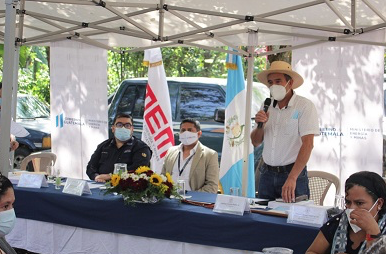Escobal, the world’s third-largest silver mine, has been shut since July 2017 after the country’s Supreme Court provisionally ordered so following an appeal from environment and human rights organization CALAS.
Escobal’s license was suspended by the constitutional court in 2017 over allegations that community consultations had not been carried out by former owner Tahoe Resources.
The Constitutional Court’s ruling ordered the Ministry of Energy and Mines (MEM) to carry out an immediate consultation of the local indigenous population, the Xinka communities, and it also upheld the license suspension for Tahoe’s smaller Juan Bosco mine.
Pan American Silver acquired Tahoe Resources, and subsequently the mine, in February 2019. Escobal has a production potential of 20 million ounces per year of silver.
In June 2019, Pan American issued a public apology on announcing the resolution of the Garcia v. Tahoe case, a lawsuit which was launched in response to a shooting incident in April 2013 at Escobal mine in southeast Guatemala. Protestors had gathered at the entrance to the mine to protest the lack of community consultation on the project.
“The first step before developing the pre-consultation, will be to carry out the study of the cultural and spiritual impact of the El Escobal mining project on the Xinca people,” Xinca representative Aleisar Arana Morales told BNamericas.

The Xinca have already selected their 59 representatives and said preparatory meetings from October to December 2020 provided a roadmap for the pre-consultation phase.
“Once this study has been carried out, it will be possible to advance with the other phases of the pre-consultation,” Arana Morales said.
“Unfortunately during all of the previous government nothing happened, nothing moved forward, and that obviously hurts investments,” former energy and mines minister Juan Pablo Ligorría told BNamericas.
“If the resolution comes against the investment of an extracting industry, then the local extractive companies will not feel motivated to bring in investment to Guatemala.”
At the pre-consultation phase, “participants … plan and design the mechanism that will be used in the presentation of the information necessary to carry out the consultation,” according to the ministry.
“The environment is positive and the fact that MEM is moving forward and accompanying and facilitating the process is good news,” Ligorría said.




